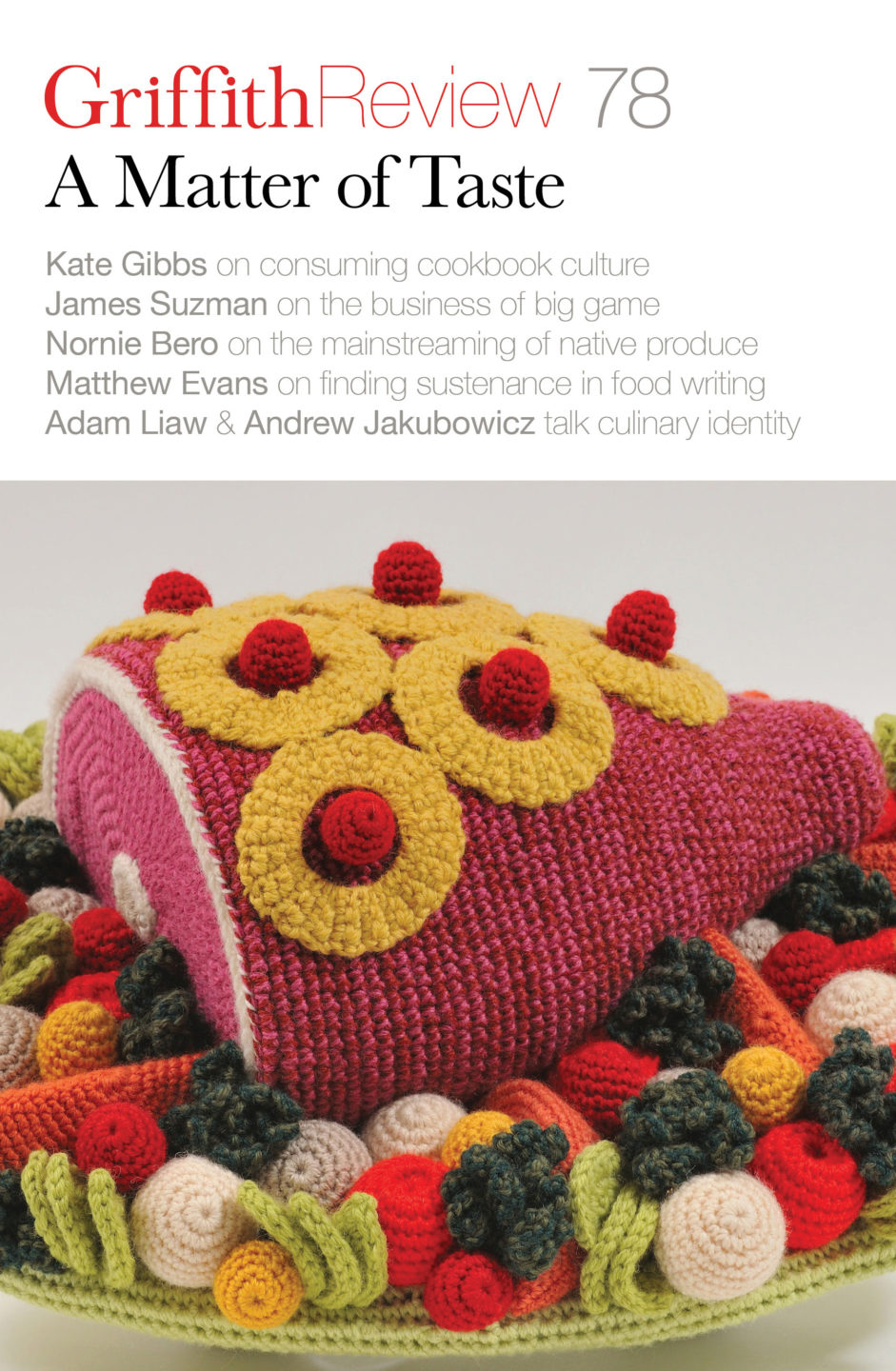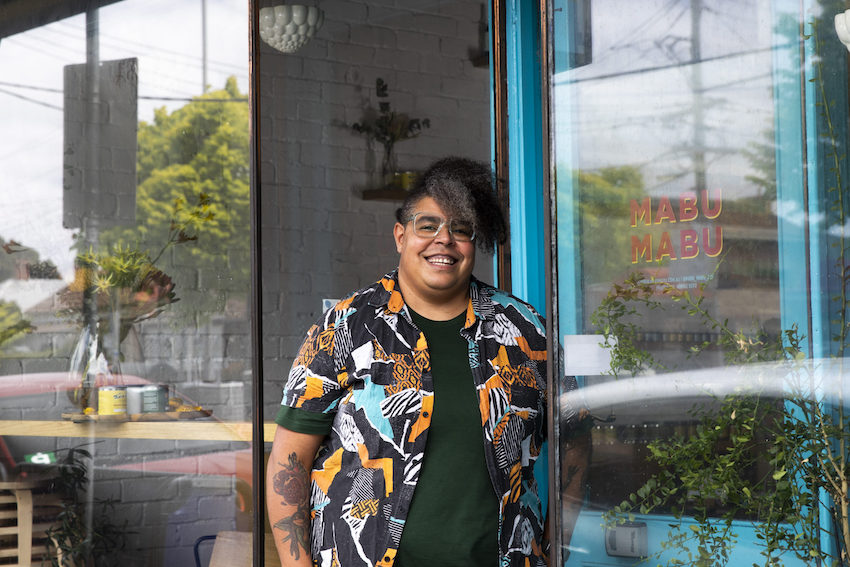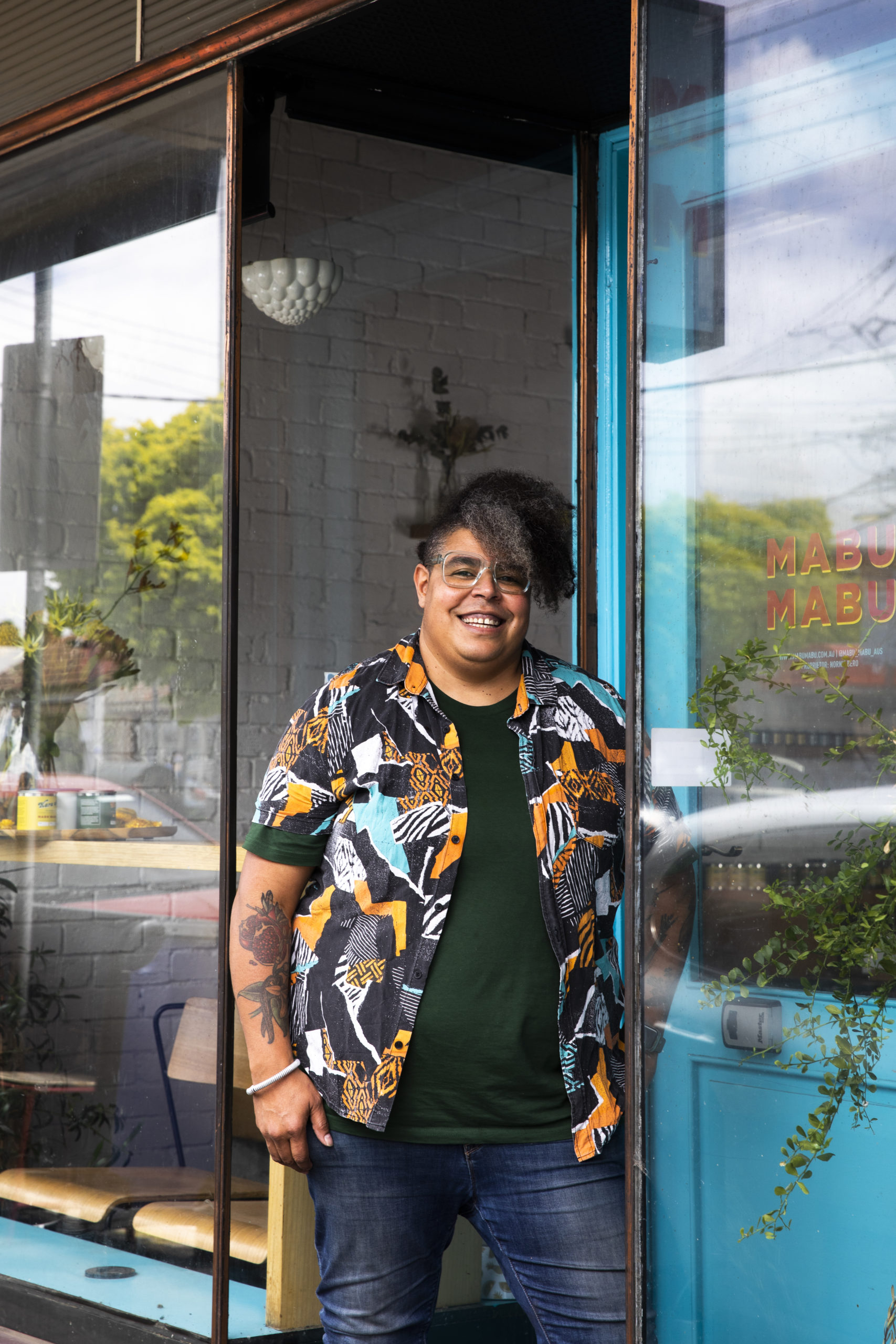A serving of home
Spearheading the return to native produce
Featured in

- Published 20221101
- ISBN: 978-1-922212-74-0
- Extent: 264pp
- Paperback (234 x 153mm), eBook


Already a subscriber? Sign in here
If you are an educator or student wishing to access content for study purposes please contact us at griffithreview@griffith.edu.au
Share article
About the author

Nornie Bero
Nornie Bero is from the Komet tribe of the Meriam people of Mer Island and was raised in the Torres Strait. A professional chef for...
More from this edition

Big Blueberry
ReportageToday blueberries are grown across the globe. In Australia, blueberry production tripled in the five years to 2021, and the fruit is grown almost year-round – a perpetual river of fructose and antioxidants shipped across the country...

Old stars
FictionI found Archie by the shallow end wearing a short terry-towelling robe open to the waist. Time and tide had left him shipwrecked and bloated, but you could still recognise him from the pictures on his album covers: same dark pouf and ducktail and duotone tan, only now he got his colour from a bottle and his hair from a can. He’d been drinking gin and tonic since happy hour started, brought out by an over-attentive waitress.

Strong food
EssayThe principal reason Ju/’hoansi didn’t seek to accumulate wealth or surpluses was because they were confident first in the inherent providence of their environment and second in their ability to exploit it – so they were content to focus their energies on meeting only their immediate material needs rather than on creating or controlling surpluses.